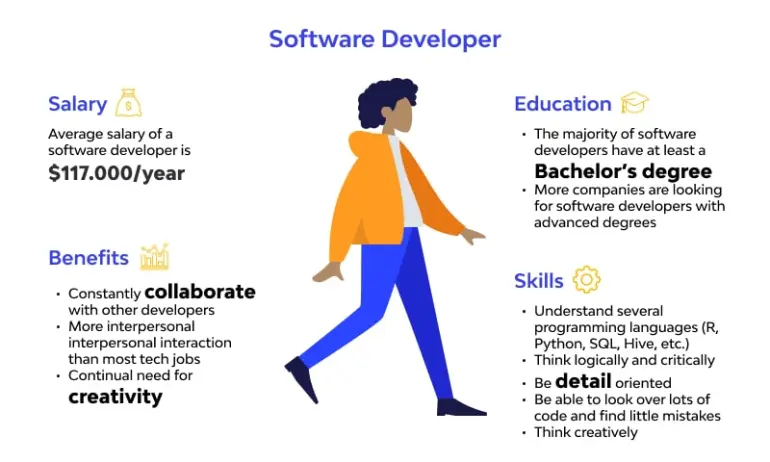
The salary and responsibilities of a software developer can vary based on factors such as experience, location, company size, and the specific role of software development. However, I can provide you with a general overview of the typical salary range and responsibilities for software developers.
Salary Range:
Software developer salaries can vary significantly based on the factors mentioned above. As of my last knowledge update in September 2021, here’s a rough estimate of the salary range for software developers:
- Junior/Entry-Level: $50,000 – $80,000 per year
- Mid-Level: $80,000 – $120,000 per year
- Senior/Experienced: $120,000 and above per year
These figures can vary widely depending on the region, industry, and other factors.
Responsibilities:
The responsibilities of a software developer can also vary based on their specialization and the company’s needs. However, here are some common responsibilities associated with software developers:
-
Coding and Development: Writing, testing, and maintaining code to create software applications. This involves programming in languages like Java, Python, C++, JavaScript, etc.
-
Problem-Solving: Analyzing problems and coming up with efficient and effective solutions in the form of software. Debugging and fixing issues that arise during development and testing.
-
Software Design: Collaborating with software architects and designers to plan and design the software’s architecture, structure, and functionality.
-
Requirements Analysis: Understanding and interpreting user requirements, business needs, and technical constraints to translate them into software specifications.
-
Collaboration: Working closely with cross-functional teams, including product managers, designers, testers, and other developers, to ensure a successful software development process.
-
Version Control: Using version control systems like Git to manage and track changes to the codebase, enabling collaboration and code versioning.
-
Testing and Quality Assurance: Writing and executing unit tests, integration tests, and other forms of testing to ensure the software’s quality, functionality, and performance.
-
Documentation: Creating technical documentation for code, APIs, and software components to assist other developers and stakeholders in understanding and using the software.
-
Continuous Learning: Keeping up with the latest technologies, programming languages, frameworks, and best practices in software development to stay relevant and efficient.
-
Deployment and Maintenance: Deploying software to production environments and providing ongoing maintenance and support to ensure the software’s functionality and performance.
-
Security: Implementing security best practices to safeguard the software and its users’ data from vulnerabilities and threats.
-
Innovation: Participating in discussions about new features, improvements, and innovations that can enhance the software’s functionality and user experience.
Remember that specific roles within software development, such as front-end, back-end, full-stack, mobile, and DevOps developers, may have slightly different focuses and responsibilities. Additionally, the rapidly evolving nature of technology means that responsibilities and skill sets can change over time.
